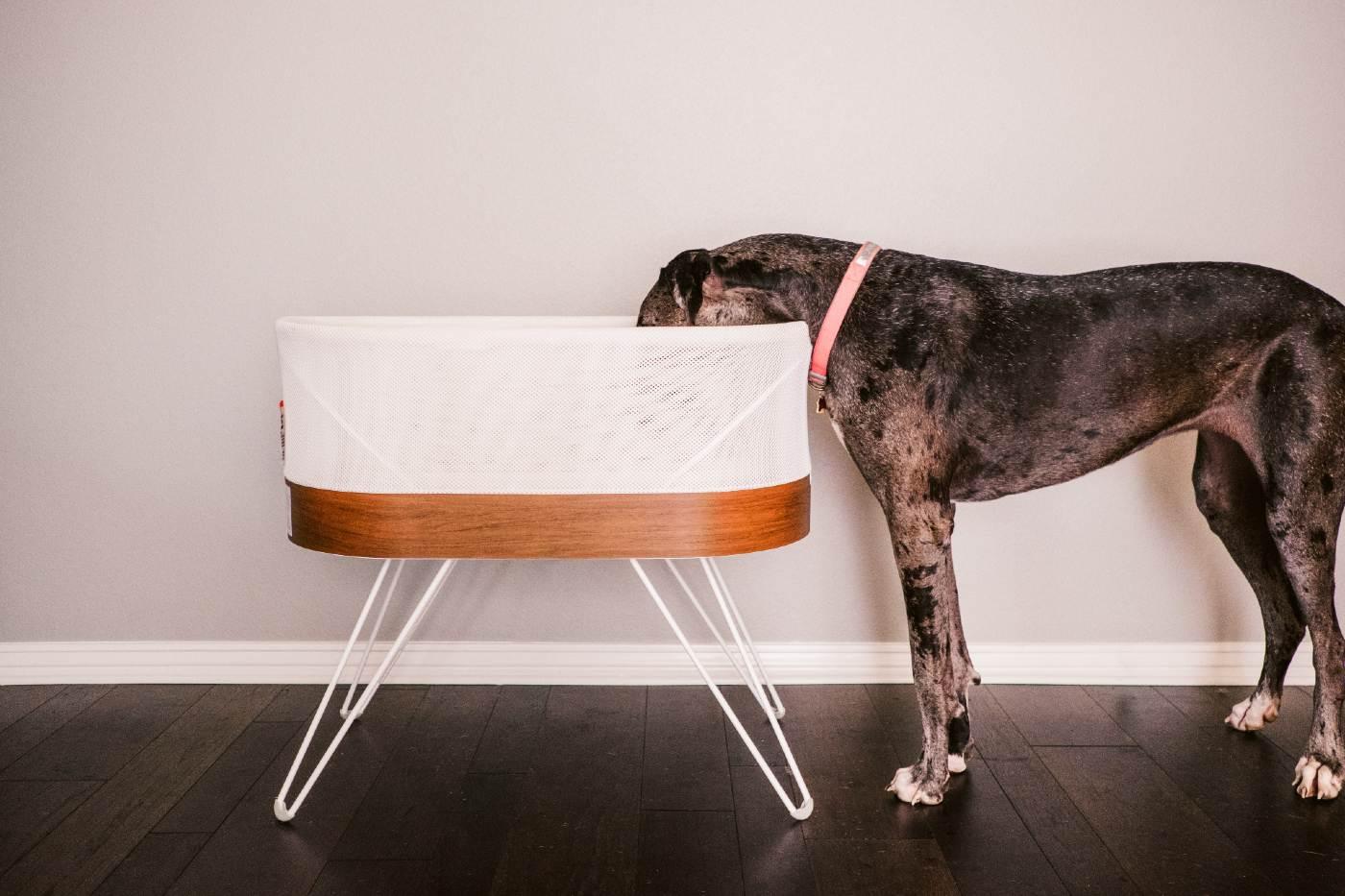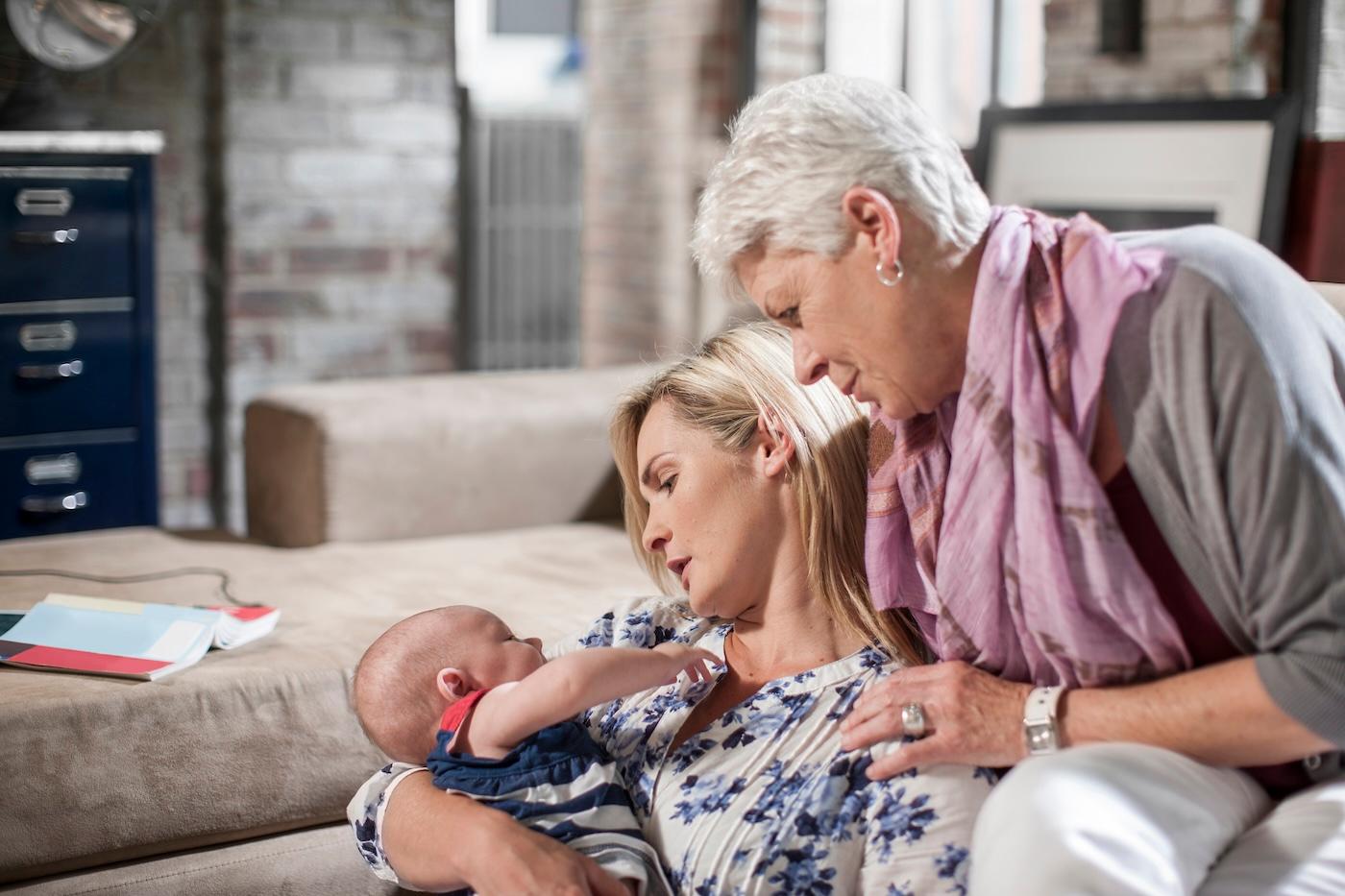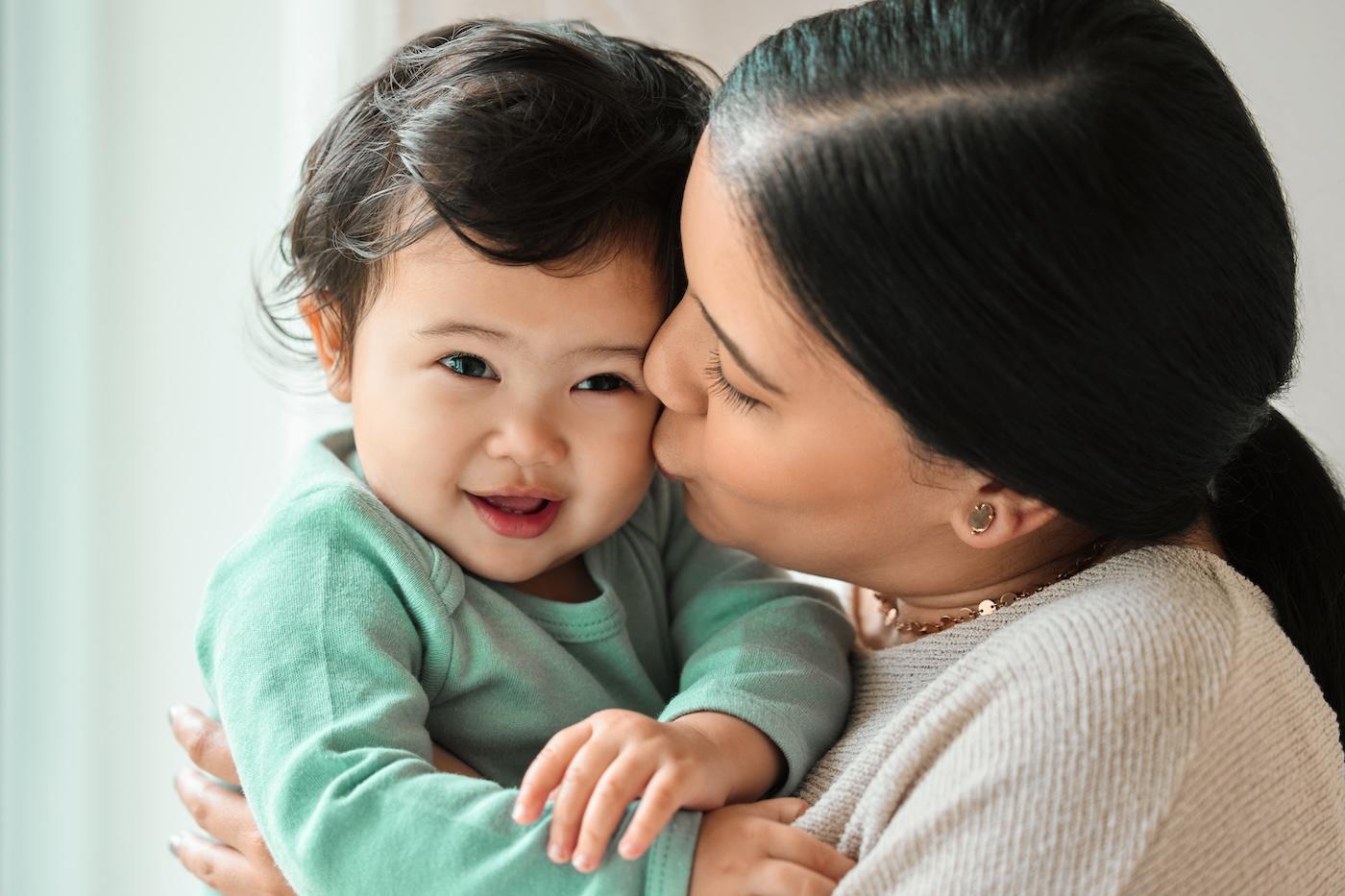PARENTS
How to Prepare Your Fur-Baby for Your New Arrival
Humans are not the only ones who need to get prepare for a baby!

Written by
Happiest Baby Staff

Your belly has been growing bigger, and you might be feeling anxious and excited about finally meeting your baby. Your fur babies (aka your pups or kitties) are likely feeling some of that nervous energy too. To help your pets transition from having your undivided attention to life with a baby, you can start prepping your home—and them—now. Here are a few ways to help your fur babies prepare for your new babe-to-be.
Talk to your vet.
The first thing to do is talk to your vet and make sure that your pets are up to date on any shots. Address any behaviours things that you think might be an issue too. For example, dogs that jump or bark at people when they enter might pose some problems when you are holding a baby. Ask your vet for tips on how to calm your pet if they get jealous or anxious around kids.
Pet-proof your home.
Before your baby arrives, start pet-proofing with baby gates. Put rules in place now to help your pets get used to the idea that they have to be careful around the newest member of the family. A few ways to get started:
- Create a basket for your pet's toys that are separate from your baby's.
- Discourage jumping on the cot or other baby furniture.
- Block off areas of the house with baby gates where you do not want your pet to go.
- Establish a place where your pet can feel safe if it needs to get away from the noise that comes with having a baby.
Start ignoring your pet for small moments.
It sounds harsh, but the truth is that if your pet loves your undivided attention, then bringing a baby into the mix can feel like a jarring change. Begin to gently push your pet away or ignore them for short periods, so they get used to you being nearby without giving them all of your attention. Once the baby arrives, your pet will understand that your love is still there; it is just spread out.
Halt any bad habits.
Feeding your dog from the table or letting your cat climb on furniture might not seem like a big deal, but these habits can spell disaster when a baby arrives. Start changing up habits as soon as you can so that the transition to life with a baby is less stressful for everyone. Here are some tips.
- Feed your pup on a schedule and from a dog dish.
- Use tin foil on furniture—including baby furniture—that you want your cat to avoid.
- Train your pets to stop swatting, chasing, or nipping on people; ask your vet for detailed plans on how to do this.
Get your pet used to the baby before they arrive.
It helps to fill your home with all the baby things you will be using so that your pets can get used to the sights and sounds that are coming. If you are using products that move or make sounds (like SNOO, which uses white noise and motion to soothe babies to sleep), turn them on so they can see and hear what sounds they make. Make noise with some of the baby toys. Let your pets smell the clothes and linens that you will you be using.
If you have your baby in a hospital or at a location that is not your home, you can ask your partner or someone you trust to bring the clothes your newborn wears home for the pets to smell before your baby comes home. This way, your pets will already know your child's scent.
Give your pet tons of love.
Our furry friends need all the love they can get. Make sure to shower them with affection so they feel secure about their position in your family pack. Taking great care of your animals will model empathy, kindness, and stewardship to your growing children, and that is a valuable lesson worth nurturing.
Disclaimer: The information on our site is NOT medical advice for any specific person or condition. It is only meant as general information. If you have any medical questions and concerns about your child or yourself, please contact your health provider. Breastmilk is the best source of nutrition for babies. It is important that, in preparation for and during breastfeeding, mothers eat a healthy, balanced diet. Combined breast- and bottle-feeding in the first weeks of life may reduce the supply of a mother's breastmilk and reversing the decision not to breastfeed is difficult. If you do decide to use infant formula, you should follow instructions carefully.
SHARE THIS ARTICLE
PARENT PICKS
Bestsellers



















